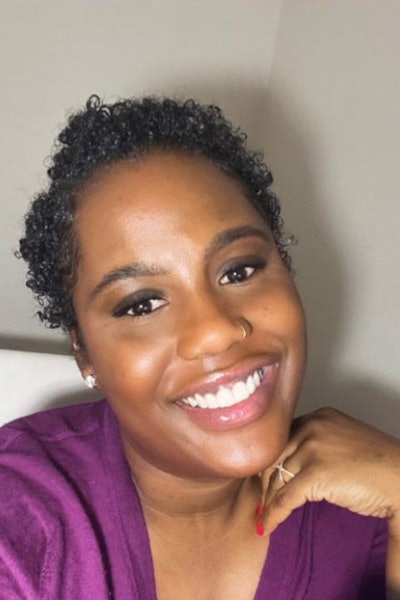Dr. Kayon Hall wants to change the way academia thinks about undocumented students.
“Black and undocumented students are socially and politically left out of the conversation,” said Hall, an assistant professor of higher education administration at Kent State University in Ohio.
This year, Hall published an article with the Journal of First-Generation Student Success about the lived experiences of Black undocumented students, highlighting the ways higher education has excluded them from immigration discourse and support.
 Dr. Kayon Hall, assistant professor of higher education administration at Kent State University in Ohio.
Dr. Kayon Hall, assistant professor of higher education administration at Kent State University in Ohio.
Hall said it’s time for postsecondary institutions to start thinking about who their undocumented resource centers are supporting and targeting, and more institutions need to engage with activist groups and organizers that are leading the way in immigrant representation. Institutions, said Hall, need to ask themselves if their policies and practices are further silencing an already silenced population.
“[Black undocumented students] are invisibilized. They don’t feel like they belong,” said Hall. “If I walk into an undocumented resource center and I don’t see an image like me, I won’t feel like I belong. We use languages that are not inclusive. In doing justice work, we have to constantly ask ourselves, who are we leaving out?”
Numerically, Black undocumented students are in the minority, said Hall. Of the approximately 427,000 undocumented students attending a postsecondary institution, only 12.5% identify as Black, according to a 2021 report from the bipartisan research organization New American Economy and the Presidents’ Alliance on Higher Education and Immigration, a group of U.S. college and university leaders connecting the dots between immigration policy and its impact on students.





















